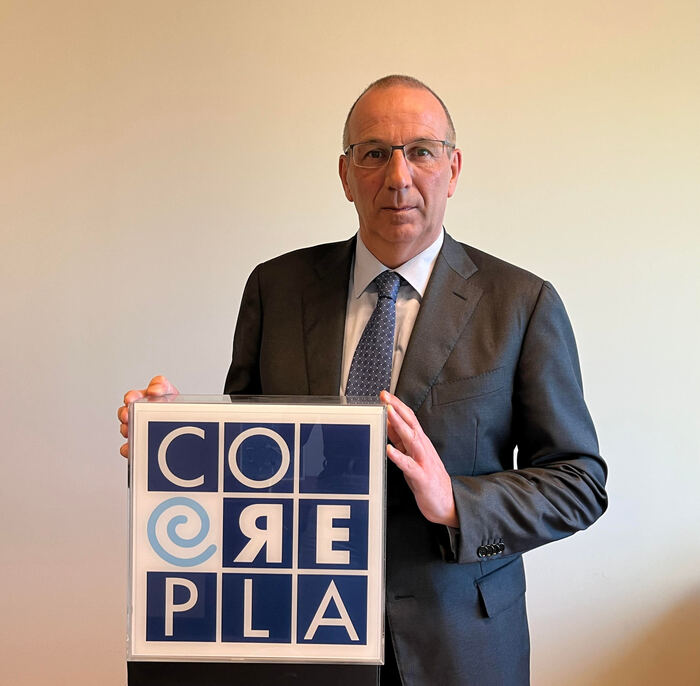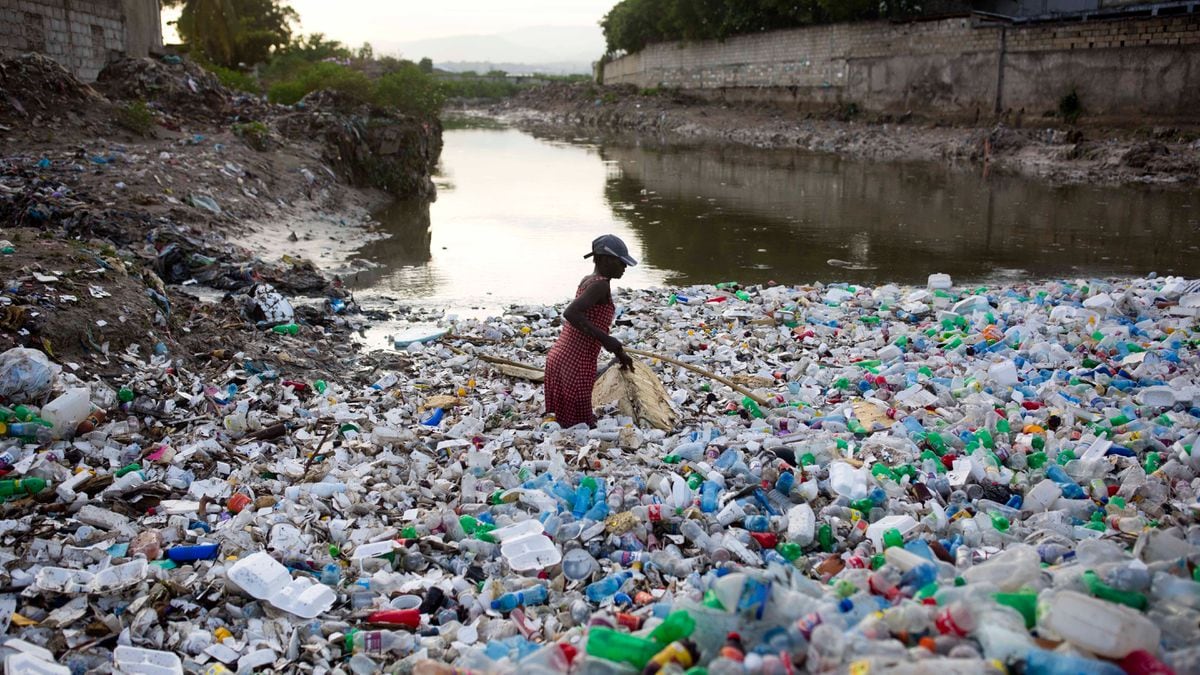Packaging is a key to sustainability and nature conservation, researchers at Fraunhofer IVV emphasize: They are working on foils that protect the environment and still protect food.
Freising - A nasty trick question is: "What packaging are you annoyed with?" Basically, his awareness has increased significantly in the past two years to avoid packaging and instead go shopping with his own bags and backpacks, the respondent replied. "My anger about packaging has increased massively because I find many to be unnecessary, for example packaging within one package."
The responder - in this case it was the journalist. The question came from Cornelia Stramm, a doctor of chemistry, who heads the Materials Development department at the Fraunhofer Institute for Process Engineering and Packaging (IVV) in Freising. And the 50-year-old snaps the trap. “Packaging is not waste, it's a value. She has to get out of the bad image! "
Packaging: "Food safety is paramount"
Stramm's main focus is not on transport packaging, but on primary packaging - on the packaging in which the food is located directly. "The most important function of the packaging is to protect the product," emphasizes the scientist. "Ensuring the safety of the food is above all." After all, it is an immense challenge to feed the explosively growing world population. "Food has an enormous value - also because there is a lot of energy and effort involved in producing it from seed to harvest to transport and sale."
Cornelia Stramm has been working on perfect packaging in the Fraunhofer IVV's technical center since 2001, making use of in-house know-how. It can rely on the knowledge of material and food experts. “The fact that we have competencies in both areas is the company's greatest strength. Because the intersection is very important to develop something meaningful. "
Packaging protects - and needs protection: At the painting facility in the technical center of the Fraunhofer IVV in Freising, the foils are given an additional layer in order to integrate further protective functions.
© Lehmann
The task is complex. Because every food has its own packaging requirements. These are, for example, very different for salad and fruit than for meat. "Good packaging ensures that the food stays as long as possible and prevents mold from forming early or simply losing vitamins," reports Stramm. But also very important: "No substances may pass from the packaging into the food."
Around ten machines are available in the Fraunhofer IVV's technical center. On the flat film extrusion system, for example, work is being done on the material components for the packaging. Four plastics can be combined here via thermoplastic processing, i.e. via a melting process, to develop active packaging, but also technical films.
Technical foils are also being tinkered with - for PV, for example
While active packaging can bind oxygen, for example, to make products last longer and protect them from loss of vitamins or colors, the technical foils can be used, for example, to insulate houses or for photovoltaic systems. "When encapsulating solar modules, the foils can replace glass," reports Stramm. "And since foils are lighter, more PV is possible on flat roofs." That is also a contribution to climate protection.
Protective varnishes are in turn applied to the foils at the painting installation. Finally, the packaging itself must also be protected - for example against weather or abrasion. "In all of our research, we have to make sure that it can be implemented in bulk," emphasizes Stramm. "Our packaging must be transferable to large systems."
Professor: "30 percent food loss is unacceptable"
This is where Professor Jens-Peter Majschak comes into play: The 57-year-old mechanical engineer has headed the Processing Technology department in Dresden at the Fraunhofer IVV and the Chair for Processing Machines / Processing Technology at the TU Dresden since 2004. He is researching suitability for mass processes. "The aim is that the processes are safe and as efficient as is necessary in a global market with an explosively growing population." With its focus on machine processes and systems for food production and packaging, the chair has a Europe-wide unique selling point. "Even worldwide I have never seen such a concentration of the topic in mechanical engineering."
Majschak is also deeply convinced that the security of food supply depends heavily on the packaging. "In Germany, the poor image of the packaging has to do with the dramatic undervaluation of the value for food," he says. That is a social problem. In view of the prevailing low prices, the consumer was also somewhat mis-conditioned. "In areas of need where there is a lack of food, 30 percent food loss on a global average is simply unacceptable." This fatal rate must be minimized with good packaging.
After all: Majschak sees a paradigm shift in mechanical engineering - away from the pure focus on efficiency and standardization, towards differentiation. "The market is changing," explains Majschak. "In addition to the big producers, more and more smaller ones are pushing onto the market with partly completely new products from new raw material sources." There is now a huge range of vegan products alone, which are both served by the packaging technology and equipped with the appropriate machine technology must. "For mechanical engineering, this means potentiating the challenge," emphasizes the professor. "On the one hand, mass production must continue to operate in the high-efficiency area, on the other hand, it must be much more flexible to meet regional and global market needs."
His focus is on sustainability: Professor Jens-Peter Majschak at the thermoforming test stand in Dresden. Here, new concepts for the production of cup packaging are researched in order to save packaging material and to test new, recyclable materials.
© Fraunhofer IVV
However, research has to remedy a problem that packaging owes to its bad reputation: that packaging itself is an environmental burden. To reduce this, the Fraunhofer IVV is not only working on new recycling processes or foils that only consist of a fossil plastic and are easier to recycle, but also on so-called biopolymers. They should replace the fossil-based substances in the medium term. "Biopolymers either come from renewable sources and / or are biodegradable," explains Stramm. They are obtained from residues. "We look where there are substances in the food industry from which starch, proteins or carbohydrates can be fetched to be used in packaging material." However, it is also clear: "You will never be able to cover the entire packaging market with renewable raw materials - at least not in the next 50 years. "
The crux: biopolymers that are biodegradable cannot do everything that fossil raw materials can do. They have different material properties. As an example, Cornelia Stramm shows a coffee mug that is made entirely from biopolymers. It is yellowish. “There are very few biopolymers that I can use to produce crystal-clear films,” she explains. But today's consumers appreciate transparent packaging, so they have to adjust there. The stiffness is usually higher with biopolymers. "That's why the materials are more difficult to process."
Plastic gone immediately? - "That doesn't solve the problems"
So there are also challenges for mechanical engineering: “This is about upgrading individual components on existing machines,” explains Majschak. The good news: You already have the right technologies in the pipeline for important processes and some of them right from the start - "because the entire value chain, from the material manufacturer to the machine builder and the recycler, is driving a brutal technology development together". The professor sees this as an important signal to the consumer: “We are not helplessly exposed to the problems that plastics cause. We have options for action. "
However, he also says: "The understandable reflex to say, take the plastic away from us, because it can never be got down from this world 'does not solve the problems." It was unrealistic to abolish all types of plastic packaging overnight. Because then a lot more food would spoil, and that would be catastrophic. ”Majschak therefore pleads for diversity. "Finding a huge solution to a huge problem is yesterday's thinking." As in the energy industry, a mix must be found worldwide that guarantees minimal use of resources.
Packaging is a key to environmental protection
The industry needs young people to do this, the professor emphasizes. “That is why we have to succeed in changing critical perception and making the huge opportunities that our industry offers visible. Not that parents say to their children who want to study: You don't go into the packaging industry because they are the bad guys. ”On the contrary:“ They have to know that I can do more for sustainability and environmental protection in packaging than anywhere else. ”
Good to know: This article is the first part of a twelve-part FT series about Fraunhofer IVV under the title "Mission World Rescue". Because whether climate change or famines - the Fraunhofer IVV in Freising conducts research on topics of global urgency.
Also interesting: The new head of the Fraunhofer Institute helps with research where "the hut burns". Offside club shocked: The purchase of the pub area has burst. fresch sauna is now officially "premium": these are the reasons.













